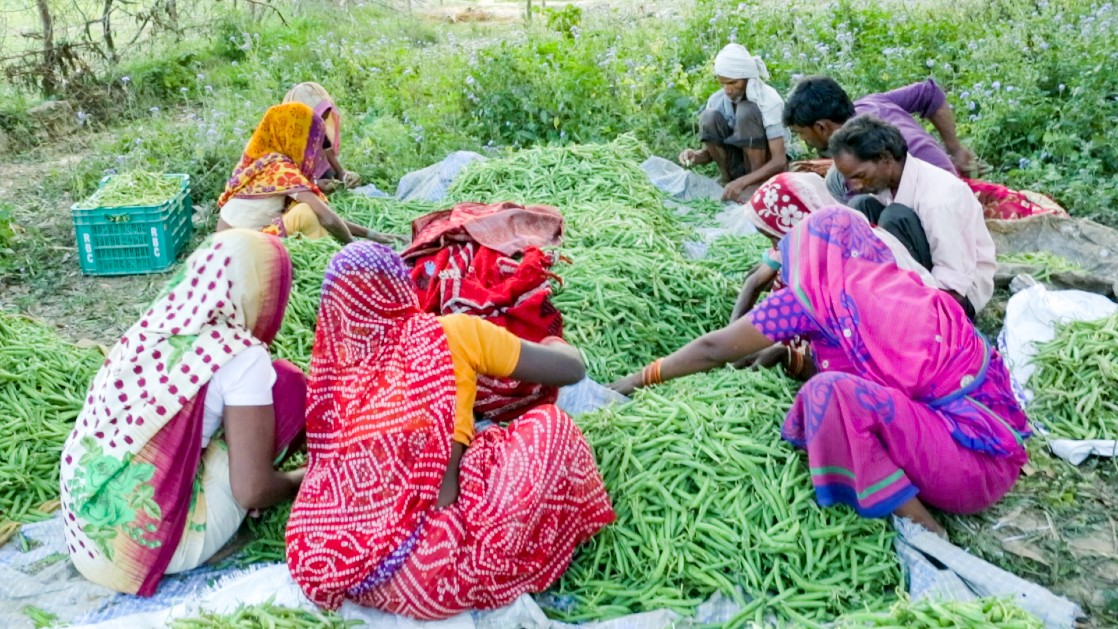The complex tapestry of global food security encompasses myriad dimensions, intertwining socio-economic development, environmental sustainability, and the moral imperatives that human societies face. Within this framework, the Baha’i teachings provide a profound lens through which we can examine the intricacies of participation and its pivotal role in addressing food security challenges. The notion of participation is not merely an abstract concept; rather, it embodies a dynamic interplay of community engagement, individual empowerment, and collective action. This article aims to elucidate the philosophy and praxis behind the Baha’i perspective on food security, while underscoring the transformative potential of participatory approaches to foster holistic and sustainable solutions.
To embark on this exploration, we must first delineate the essence of food security. Defined by the Food and Agriculture Organization (FAO) as a condition in which all individuals have physical, social, and economic access to sufficient, safe, and nutritious food to meet their dietary needs, food security invites us to consider the multifaceted nature of hunger and malnutrition. It is intrinsically linked to a web of agricultural practices, economic policies, cultural values, and international relations. Each of these components necessitates robust participation from all stakeholders—governments, NGOs, local communities, and individual citizens alike.
At the heart of Baha’i teachings lies the principle of unity in diversity. This tenet emphasizes the importance of collaboration across various sectors of society. As the Baha’i Chair adeptly illustrates, food security can only be attained when individuals from a diverse array of backgrounds contribute their expertise and experiences. Notably, grassroots movements and local initiatives are crucial; they empower marginalized communities to voice their needs and shape policies that affect their well-being. By advocating for participatory governance in food policy-making, the Baha’i perspective champions the idea that every voice must be heard and valued.
This engagement brings us to the concept of capacity building. In a world where food systems are increasingly besieged by climate change, economic disparities, and social inequities, the Baha’i teachings advocate for the fostering of skills and knowledge at the community level. Through education and training programs that emphasize not just agricultural techniques but also ethical consumption and sustainability, communities can develop the resilience necessary to confront the vicissitudes of food insecurity. Empowering individuals to take ownership of their nutritional well-being promotes a sense of agency that is essential for long-term change.
Furthermore, the role of collective consciousness cannot be overlooked. The Baha’i teachings urge individuals to recognize their interconnectedness, as the repercussions of food insecurity extend far beyond mere hunger. A society that embraces the principle of collective responsibility is better positioned to implement systemic change. When communities unite, they can influence policy at various levels, lobbying for reforms that ensure equitable food distribution, access to resources, and support for sustainable agricultural practices. This synergy among individuals and groups catalyzes a paradigm shift, one that prioritizes not just survival, but thriving.
An integral aspect of this approach is the Baha’i emphasis on justice and equity. Food systems are often rife with disparities; rural populations may find themselves disproportionately affected by global market fluctuations, while urban centers grapple with food deserts. The Baha’i philosophy advocates for a re-evaluation of societal values that underpin these inequities. By addressing the root causes of unfairness in food distribution, a more just and responsible framework can be established. This framework nurtures a culture of accountability, where those in positions of power are compelled to act in the interests of the wider community rather than for individual or corporate gain.
The ecological implications of food security also merit attention. The Baha’i teachings underscore the sanctity of the earth and the imperative to act as stewards of our environment. Sustainable agricultural practices necessitate active participation from all facets of society, including scientists, farmers, and consumers. Reimagining food systems through an ecological lens encourages innovative practices that prioritize biodiversity and minimize environmental degradation. By integrating sustainable agriculture into the fabric of food security initiatives, we invite a radical transformation of societal interactions with the natural world.
As we contemplate the nexus of participation and food security, it is essential to integrate a forward-thinking approach that harnesses the potential of technology. In today’s digital age, technology serves as both a catalyst for and a barrier to progress. While it can facilitate access to information and resources, it can also create new inequalities. The Baha’i teachings elucidate the need to leverage technological advancements in ways that empower communities rather than disenfranchising them. Innovative tools such as mobile applications for monitoring food supply chains or platforms for sharing agricultural knowledge can enhance participatory methods and foster collaboration.
In conclusion, food security stands as a multifaceted challenge that demands transformative change rooted in the principles of participation espoused by Baha’i teachings. By encouraging inclusive engagement, fostering knowledge, and promoting justice and sustainable practices, the Baha’i Chair’s initiative serves as a clarion call to shift our perspective on food security. As we conclude, it becomes evident that participation is not just the key; it is the very mechanism through which societies can transcend the dire realities of hunger and malnutrition, paving the way for a future where every individual shares in the bounty of the earth. The journey towards food security is a collective one, fraught with challenges but brimming with the promise of a united, equitable, and sustainable world.
